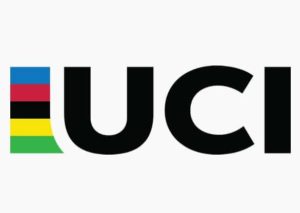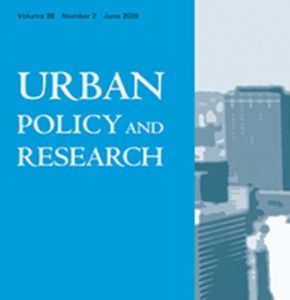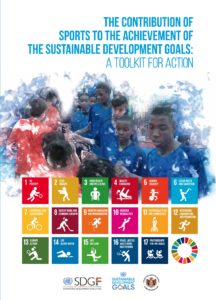
The World Federation of the Sporting Goods Industry (WFSGI) was formed in 1978 to promote the world’s sporting activities, to standardise the size of equipment and the rules of sport, to improve the standards of quality for sporting goods and to promote responsible and sustainable practices in sporting goods internationally.
Today the WFSGI consists of a diverse global membership including brands, manufacturers, retailers and national & regional sports federations (“members”).
The purpose of the Code is to guide WFSGI members in the standards and practices expected in the workplaces that they operate or contract from.





GRI (Global Reporting Initiative)
The Global Reporting Initiative (known as GRI) is an international independent standards organization that helps businesses, governments and other organizations understand and communicate their impacts on issues such as climate change, human rights and corruption.
Under increasing pressure from different stakeholder groups – such as governments, consumers and investors – to be more transparent about their environmental, economic and social impacts, many companies publish a sustainability report, also known as a corporate social responsibility (CSR) or environmental, social and governance (ESG) report. GRI’s framework for sustainability reporting helps companies identify, gather and report this information in a clear and comparable manner. First launched in 2000, GRI’s sustainability reporting framework is now the most widely used by multinational organizations, governments, small and medium enterprises (SMEs), NGOs and industry groups in more than 90 countries. In 2017, 63 percent of the largest 100 companies (N100), and 75 percent of the Global Fortune 250 (G250) reported applying the GRI reporting framework.
The most recent of GRI’s reporting frameworks are the GRI Standards, launched in October 2016. Developed by the Global Sustainability Standards Board (GSSB), the GRI Standards are the first global standards for sustainability reporting and are a free public good. In contrast to the earlier reporting frameworks, the GRI Standards have a modular structure, making them easier to update and adapt.
The GRI was formed by the United States-based non-profits Ceres (formerly the Coalition for Environmentally Responsible Economies) and Tellus Institute, with the support of the United Nations Environment Programme (UNEP) in 1997. It released an "exposure draft" version of the Sustainability Reporting Guidelines in 1999, the first full version in 2000, the second version was released at the World Summit for Sustainable Development in Johannesburg—where the organization and the guidelines were also referred to in the Plan of Implementation signed by all attending member states. Later that year it became a permanent institution. In 2002 GRI moved its secretariat to Amsterdam, Netherlands. Although the GRI is independent, it remains a collaborating centre of UNEP and works in cooperation with the United Nations Global Compact.
Global sport organisations such as the International Olympic Committee rely on GRI to measure their environmental impact.

LEED (Leadership in Energy and Environmental Design) is the most widely used green building rating system in the world. Available for virtually all building types, LEED provides a framework for healthy, highly efficient, and cost-saving green buildings. LEED certification is a globally recognized symbol of sustainability achievement and leadership. Millions of people are living, working and learning in LEED-certified buildings around the world.



The UCI Bike City label supports and reward cities and regions who not only host major UCI cycling events but also invest in developing community cycling and related infrastructure. The long-term aim is to develop a network of UCI Bike Cities, creating examples around the world of how cities can maximise the impact of sport to help create better, safer cities for all people on bikes, regardless of their age, level of fitness or cycling activity. To be eligible for the UCI label, cities and regions will be assessed according to a broad range of criteria which demonstrate how elite cycling events can be part of an overall strategy to promote and achieve safe cycling for all.



Cycling for all
2020 cycling boom in the USA This week we turn our attention to the USA, where 2020 will likely stand as the biggest year […]


Making the ‘Climate Pledge’
Oak View Group, NHL Seattle and Amazon announce unprecedented partnership to build a zero-carbon ‘Climate Pledge Arena’ and commit to carbon-neutral operations and events.The […]




Sustaining Sydney: The ‘Green Olympics’ from a global perspective
'Will Sydney continue on into the new millennium with a vision for sustainable living, as their Government has promised? Or will it be business as usual?' - this was the question posed by Murray Hogarth (1999), environment editor for the Sydney MorningHerald'in the weeks leading up to the 1999 New South Wales state election. Now, as we have entered what many environmentalists hoped to call the 'green century', there is an increasingly pressing need to consider what transformations in human systems may be required to halt and reverse the degradation of the global ecosystem.



The contribution of sports to the achievement of the Sustainable Development Goals
This toolkit aims to identify and showcase the crucial role sports plays in mobilizing support and creating public awareness of the SDGs. By highlighting successful case studies from the private sector, UN entities, Member States and non-governmental organizations (NGOs), this toolkit is expected to serve as a guide on how to create sustainable partnerships around sport.








Sport Sustainability : Impact Assessment-Environmental
This module is part of a 12 clips guide created by SportAccord, AISTS, PI, and IOC, to help us understand sustainability as a whole, and look at what it means. Environmental Impact Assessment. Why measure, what it is, and how to measure it. (Video 8/12)








Sport Sustainability : Impact Assessment-Data Gathering
This module is part of a 12 clips guide created by SportAccord, AISTS, PI, and IOC, to help us understand sustainability as a whole, and look at what it means. Topics include ethical issues, cost and finance issues, possible partnerships, as well as the 7 steps to successful data gathering. (Video 12/12)














